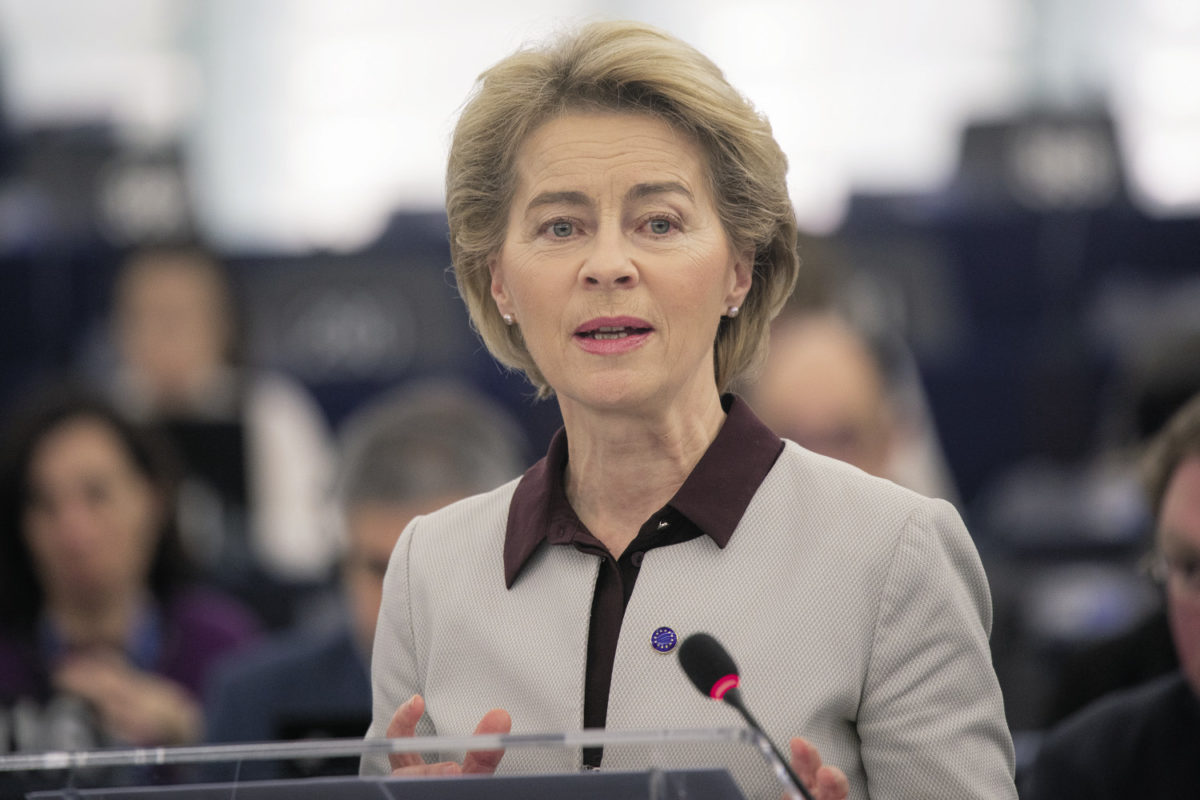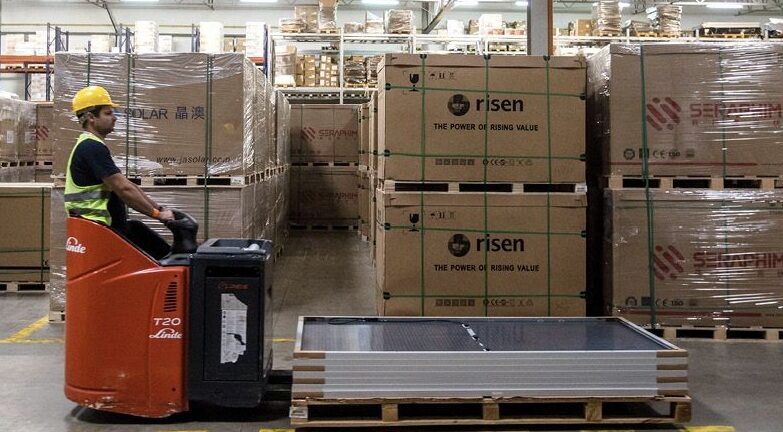The European Commission has unveiled the Clean Industrial Deal, a plan to bolster industrial competitiveness while also accelerating decarbonization across the bloc.
The initiative is designed to lower energy costs, support clean technology industries, and streamline regulations, addressing concerns over high energy prices and global competition, according to an online statement.
“Europe is not only a continent of industrial innovation, but also a continent of industrial production. However, the demand for clean products has slowed down, and some investments have moved to other regions,” said European Commission President Ursula von der Leyen. “We know that too many obstacles still stand in the way of our European companies from high energy prices to excessive regulatory burden. The Clean Industrial Deal is to cut the ties that still hold our companies back and make a clear business case for Europe.”
The initiative prioritizes energy-intensive industries and clean tech, offering financial support to strengthen supply chains and reduce reliance on third-country suppliers for raw materials. It also includes the Industrial Decarbonization Accelerator Act to boost demand for EU-made clean products and a voluntary carbon intensity label for industrial goods, starting with steel in 2025 and cement thereafter.
To lower energy costs, the European Commission has additionally introduced an Affordable Energy Action Plan. This is designed to expand clean energy and improve grid infrastructure.
The commission said in its statement that it plans to launch a Circular Economy Act in 2026 to enhance resource efficiency and reduce dependency on critical materials. The financing package includes more than €100 billion ($104.9 billion) in investment, backed by the European Investment Bank and other funding mechanisms.
In addition, a new Clean Industrial Deal State Aid Framework will streamline approvals for government support, said the commission. It noted that a proposed Industrial Decarbonization Bank also aims to secure further funding.
“Today, Europe is making a bold business case for decarbonization as a driver of prosperity, growth, and resilience. By committing to delivering on the Green Deal climate objectives, we are setting the stage for a sustainable future,” said Teresa Ribera, the European Commission's executive vice-president for clean, just, and competitive transition. “Our plan provides the stability and confidence investors need – unlocking capital, expanding clean tech markets, making energy more accessible, and ensuring a fair, competitive landscape where businesses can thrive. But it’s also about people. This strategy is designed to create jobs, develop skills, and open opportunities for all Europeans.”
The commission said it also plans to strengthen trade defenses against unfair global competition and simplify the Carbon Border Adjustment Mechanism.
A new EU Critical Raw Material Centre will be established to coordinate bulk purchases and secure supply chains. The commission noted that the plan includes measures to develop a skilled workforce, with up to €90 million from Erasmus+ allocated to training in strategic industries.
“Europe needs to be cleaner, more competitive, and self-sufficient. The Clean Industrial Deal is our business plan: a decarbonisation strategy that re-industrializes Europe, driving competitiveness and boosting strategic independence,” said Wopke Hoekstra, the European commissioner for climate, net zero, and clean growth. “We’ve got a plan, and we’re putting it into action, starting today, to ensure a prosperous European future.”
The European Commission said the Clean Industrial Deal builds on commitments made in the Antwerp Declaration for a European Industrial Deal and the Clean Transition Dialogues. The commission claimed that it aims to implement key initiatives within its first 100 days in office, with further action plans for the automotive, steel, and chemical industries expected later this year.
In October 2024, the European Commission allocated €4.8 billion from its Innovation Fund to 85 net-zero projects across 18 EU member states, including initiatives to boost solar manufacturing capacity by 3 GW. The funding aims to support projects in various sectors, including solar, heat pumps, energy storage, and net-zero mobility, with completion expected by 2030.
Earlier this year, the commission launched a public consultation on non-price criteria for future renewable energy auctions. The consultation aimed to clarify and ensure uniform application of criteria like responsible business conduct, cybersecurity, and project delivery across EU member states.
This content is protected by copyright and may not be reused. If you want to cooperate with us and would like to reuse some of our content, please contact: editors@pv-magazine.com.



By submitting this form you agree to pv magazine using your data for the purposes of publishing your comment.
Your personal data will only be disclosed or otherwise transmitted to third parties for the purposes of spam filtering or if this is necessary for technical maintenance of the website. Any other transfer to third parties will not take place unless this is justified on the basis of applicable data protection regulations or if pv magazine is legally obliged to do so.
You may revoke this consent at any time with effect for the future, in which case your personal data will be deleted immediately. Otherwise, your data will be deleted if pv magazine has processed your request or the purpose of data storage is fulfilled.
Further information on data privacy can be found in our Data Protection Policy.